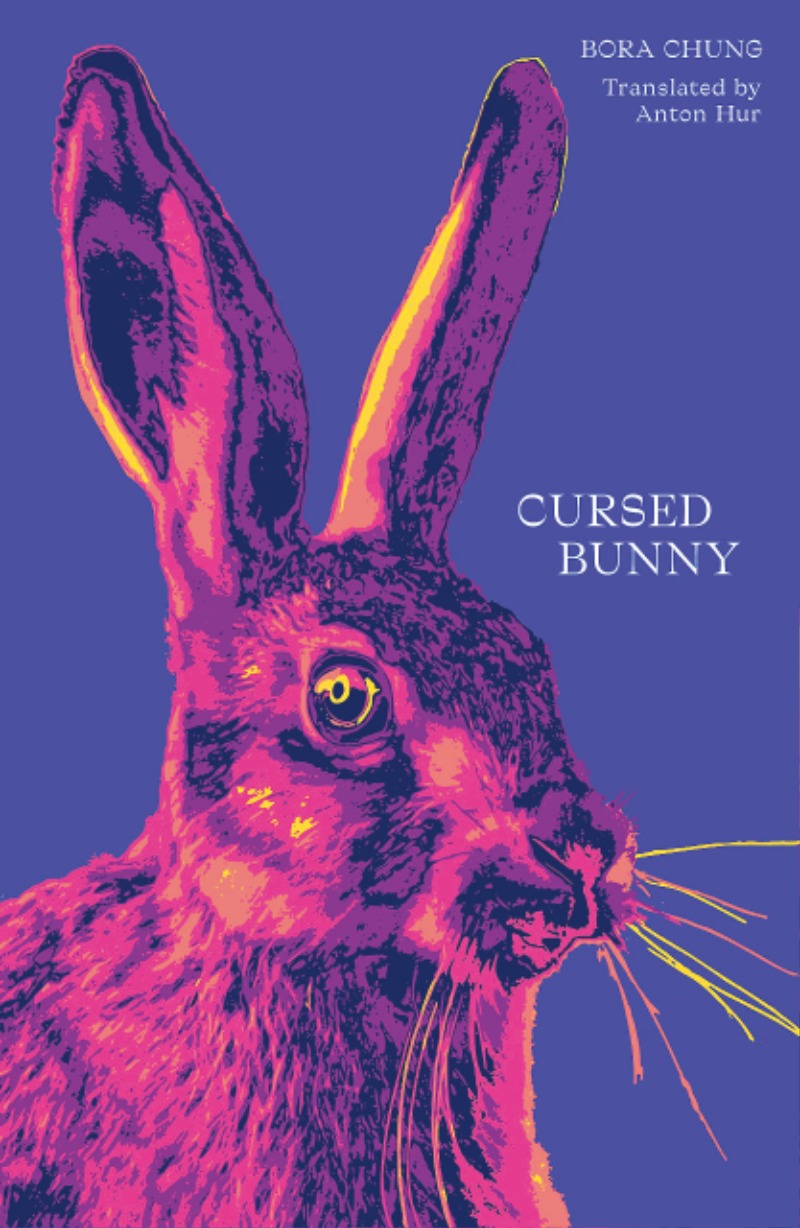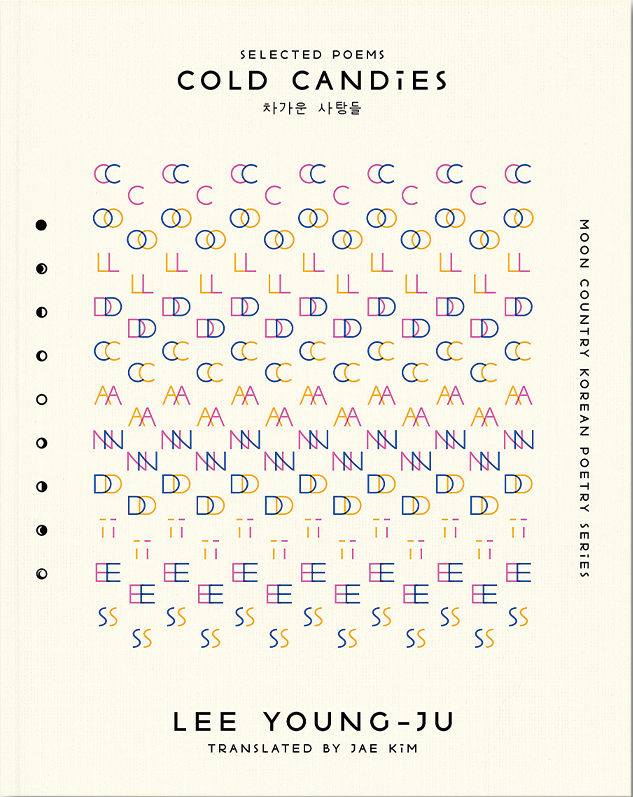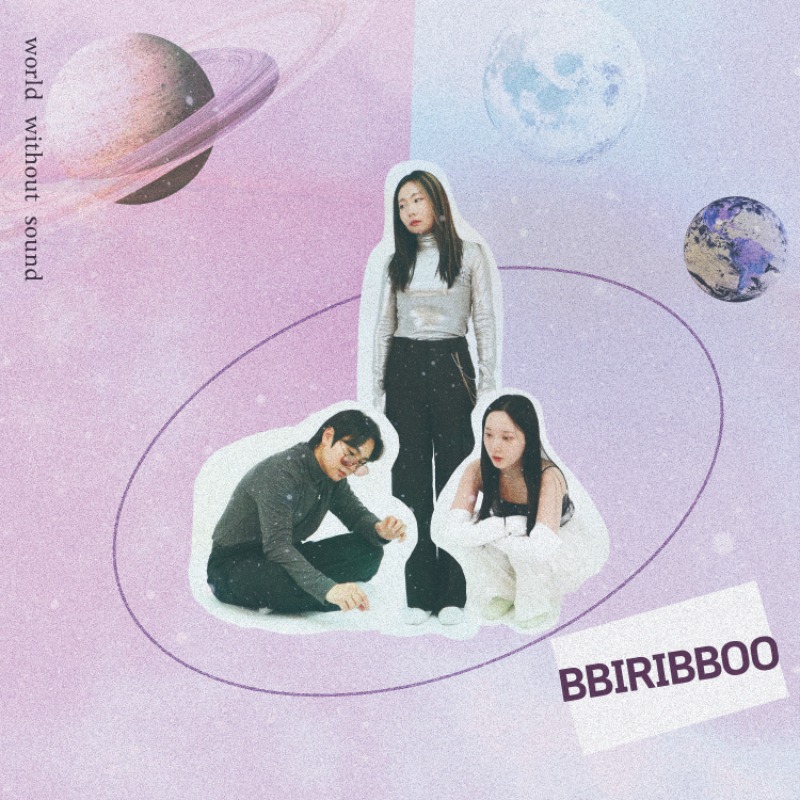‘Cursed Bunny’
By Chung Bo-ra Translated by Anton Hur 256 pages, £10.99, Stockport: Honford Star [2021]
A Collection of Haunted Forays

“CURSED BUNNY” is Bora Chung’s first collection of fiction to be published in English. Already shortlisted for the 2022 International Booker Prize, it consists of 10 stories that leap gleefully from genre to genre, hurdling boundaries of horror, fantasy, and science fiction. The collection begins with “The Head” and “The Embodiment.” Initially, they seem to be set in worlds that are very much like our own but are revealed to be quite off-kilter as the female protagonists struggle to deal with the horror that emerges from their bodies. While the characters’ concerns are completely understandable, they are in a world that treats their reactions with indifference and scorn. “Home Sweet Home” and “Reunion” take place in similarly magical-realistic settings, but these worlds are suffused with the spirits of the dead, who linger as reminders of tragic pasts and even offer comfort to the protagonists. “The Frozen Finger” is also a tale of ghosts, but the darkness that enshrouds the protagonist serves to blind the reader to what is actually happening, right up until the end. And of course, there is the titular story, a tale of avarice, revenge and a horrifying, cursed fetish that consumes all those entranced by it. “Snare” employs fairy tale framing devices to remove us from the present day and introduces a twist on the classic narrative of an animal that rewards the person who frees it from a trap. There seem to be echoes here of Korean folktales, such as the cruel Nolbu wounding the sparrow in his greed, or stories of voracious fox spirits. “Scars,” the longest work in the collection, also hearkens from the age of legends and fables. It beckons us to follow the protagonist on his journey to discover why he has been subjected to the pain and horror that haunt his earliest memories. “Ruler of the Winds and Sands” is almost mythic in nature, its characters locked in a struggle beyond their comprehension. They experience a reversal of the damsel in distress motif – a brave princess fighting to save her love. “Goodbye, My Love” seems, at first, to be the outlier, the only pure science fiction tale in the collection. It probes our regard for artificial intelligence and how a post-human future may impact us. There are echoes of Asimov here, and the emotionally charged narrative makes this a heartbreaking tale that will linger long after the last page is turned.
Though these stories range far and wide in terms of both genre and theme, there are shared threads that bind the stories together. The human body is often presented as a burden, both a mortal coil and a receptacle for society’s demands. Greed and its consequences are another common theme, as we see horrible things happen to those who seek to slake their thirst for more than they should at the expense of others. But these stories are never satisfied with being mere morality tales. Ghosts drift in and out of a number of the tales, but interestingly enough, are rarely themselves the cause of fear or horror (with the notable exception, perhaps, of “The Frozen Finger”). Instead, the ghosts in “Cursed Bunny” speak to the ties that bind us to our world, ties so strong that the essence lingers long after it has departed the corporeal form. If there is horror here, it is not to be found primarily in the weird and supernatural, but in the very ordinary and natural, within the darkest corners of our flawed human nature. Bora Chung’s writing raises a mirror to that nature, forcing us to confront the most unsettling aspects of what it means to be human. When the book has been closed and the lights extinguished, these glimpses will linger in the darkness.
‘Cold Candies’
By Lee Young-ju Translated by Jae Kim 96 pages, $16.00, Boston: Black Ocean [2021]
Piecing Fragments of Life Together

“COLD CANDIES” Introduces poems selected from two decades of Lee Young-ju’s work to the English-speaking world. These prose poems straddle the border between narrative and lyric, each encapsulating a brief story or fragment of a story couched in slippery yet evocative language. Reading them feels almost like looking through a kaleidoscope – thoughts, memories, and emotions fragment into splintered shards that gleam as the light shines through them. Lee plays with words like an impressionist toys with paints, refusing to carve distinct lines that would allow interpretation. As we allow the words to wash over us, only then do the images become clear. But there are indeed evident themes in these paradoxical scenes. Death is ubiquitous and accompanied by its natural conclusion, decay. And yet, the sweet, musty scent of rot is understood as part of the cyclical nature of life. Fluids flow through the poems like a river: water in its many forms, but also bodily fluids – tears, blood, urine. The body itself is a source of pain, but also fertile soil from which things might grow, like the bone that grows from a young girl’s back into a crescent moon, or mushrooms that grow from rot to blossom into mysterious, interconnected life. As the collection comes to a close, the final poem paraphrases the Buddha: “All that we are is the result of what we have thought.” “Cold Candies” indeed presents us with a multitude of paths to becoming.
‘world without sound’(Gonseonggye)
Lim Hee-yun Culture Reporter, Dong-A Ilbo By BBIRIBBOO, EP album, Free Streaming via Melon, Apple Music, and YouTube, Seoul: CAIOS (2022)
World Emptied of Sound

The album title “GONGSEONGGYE” is a word coined by BBIRIBBOO, a Korean traditional music fusion band. It means “world without sound.” This debut album, released in early 2022, depicts a journey in search of an imaginary world.
The group consists of two piri (double-reed oboe) players, Kwon Sol-ji and Son Sae-ha, and Heven, a bassist and producer. Like other piri players, they play the taepyeongso (conical oboe) or the saenghwang (free-reed mouth organ with 17 bamboo pipes) depending on the piece of music.
“Iraiza,” the first piece, is the highlight of the album. It announces the advent of BBIRIBBOO in the world of music. In the beginning, dark and damp electronic tones reminiscent of the dark ambient genre paint the vast interplanetary space in black as if with an ink brush. Then, two taepyeongso combine for a sound like a rocket being launched. The hi-hat and bass beat go wild with a sense of urgency, flailing like a whip.
“Eunneuny” involves ambient sound recast as healing music. The two piri swim like mysterious jellyfish navigating the depths of the ocean, producing a dazzling melody in a major key alongside a calm harmony.
“In Dodri” is a variation on the melody of “Yangcheong Dodeuri” from “Celebrating Eternity” (Cheonnyeon manse), a suite enjoyed by the royal court and upper classes of the Joseon Dynasty. This is the only dance music on the album, with a funky bass line and beat.
The album is an impressive first step in BBIRIBBOO’s musical journey. However, the road ahead looks difficult. Acts such as Jambinai, Park Ji-ha and HAEPAARY have already attracted a lot of attention, so BBIRIBBOO will need to be bolder and more challenging in the future.